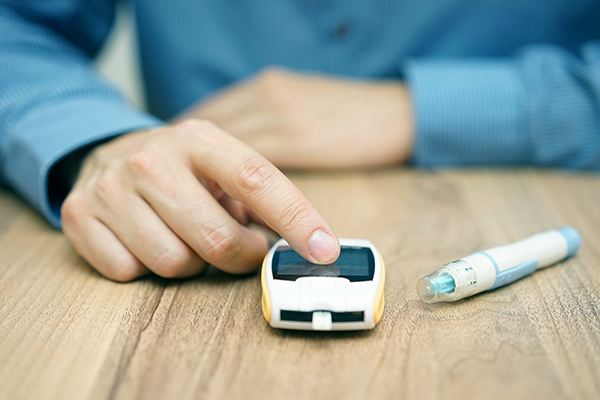Symptoms of diabetes

Knowing the symptoms of diabetes and your predisposition to develop it can be crucial to live better. Knowing your predisposition can diminish possible complications in the kidneys, the nervous system and the eyes.
What are the symptoms of prediabetes?
Prediabetes is a silent disease. It does not generate external symptoms. People with prediabetes have higher than normal blood sugar levels.
Uncontrolled prediabetes will probably turn into irreversible type 2 diabetes.
(The following explanation is merely informative and is not intended to offer a diagnosis. Consult your doctor)
Prediabetes can be treated and prevented with a change of diet and physical exercise. Pharmacological treatment can be prescribed but in many cases it is enough to follow a healthy lifestyle.
The longer it goes undiagnosed, the greater the probability of it turning into type 2 diabetes. It is estimated that between 20% and 25% of the adult population is suffering from prediabetes in developed countries without knowing it.
Having prediabetes and having an elevated genetic risk of suffering from type 2 diabetes means we should take maximum precautions in lifestyle habits.
Find out your genetic predisposition to suffering from type 2 diabetes
Often diabetes is not diagnosed at first because many of its symptoms seem harmless:
- constant thirst
- frequent urination
- increase in tiredness or weakness
- unusual hunger
- unjustified weight loss
- irritability
- blurred vision
What are the symptoms of diabetes?
Symptoms of type 1 diabetes
In type 1 diabetes the symptoms that appear and can make us suspect that we are suffering from diabetes are:
- Urinate frequently: The kidneys respond to high levels of glucose in the blood by eliminating the excess glucose in urine. People who have high blood sugar levels urinate frequently and in great quantities.
- Drink lots of liquid: When a person urinates a lot, in general they are very thirsty.
- Lose weight, although there has been no change in appetite: When there is not enough insulin to help the body to use glucose, the body consumes muscle and fat to generate energy.Cuando no hay suficiente insulina para ayudar al cuerpo a utilizar glucosa, el cuerpo consume músculo y grasa para generar energía.
- Feel tired and irritable. Given that the body cannot use glucose correctly as a source of energy, it is possible that the person feels unusually tired.
Symptoms of type 2 diabetes
In type 2 diabetes, generally the first phases are silent and the symptoms become apparent when the disease is already major.
- Frequent bladder infections
- Blurred vision
- Skin cuts that take a long time to heal
- Tingling in the hands and feet


